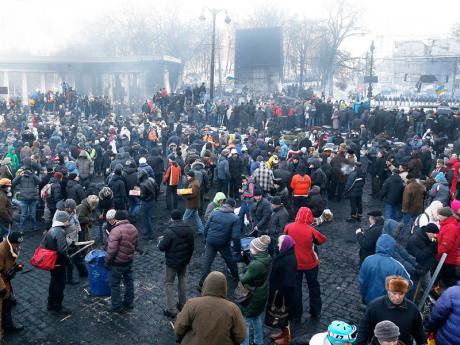A project in schools to arrest crime
Excerpts of a ministry paper, 'A preventative initiative in schools to ameliorate Jamaica's crime problem', presented by Minister of Education, Ronald Thwaites, in Parliament last week.
Members are being asked to note the Ministry of Education's preventative initiative to help ameliorate Jamaica's crime scourge and to partner with the Unite for Change project of the Ministry of National Security.
Criminals are not born. They are formed, often by neglect or poor socialisation. The major positive environments in the formative process are school, church and/or family. Every child goes to school at some time. There is no other institution with such potential for positive socialisation. As such, law-abiding habits ought to be expressly connected with the school experience.
A recent local study identified the links between the behaviour patterns of children and their later anti-social conduct, and noted that both can often be predicted from school days.
Studies show that many who end up committing serious crime were frequently absent from school, exhibited cognitive or social abnormalities, were not assessed or treated adequately, had little or no effective family/teacher support and dropped out/'graduated' with inadequate or no certification.
The Jamaica Constabulary Force (JCF) study identifies certain junior high/high schools which the individuals in the study attended.
MINISTRY'S RESPONSE
Given the identification of 56 seriously affected schools, inclusive of 18 identified by the JCF, beginning February 2014, a special intervention will be crafted for each of these schools to identify troubled, deviant and seriously disadvantaged students; assess and address their situations; and prevent drop-outs.
The Ministry also proposes a system-wide intervention beginning in 2014. It will:
Administer a test to determine the social and emotional state of at-risk students;
complete development of regional referral centres to treat with major dysfunctional tendencies;
offer teachers in primary schools training in counselling, parental engagement and primary therapies related to challenged children;
request a revision of the courses in behaviour management in all teacher-training institutions to ensure that they cover the emerging behavioural challenges being displayed by students;
appoint social workers in education regions who will network with relevant ministries and agencies;
provide instruction to principals on how to identify and respond to disturbed students;
implement a programme to detect and address disruptive conduct and drop-out risks in certain grades by September 2015;
expand opportunities for students to become involved in uniformed groups, sports and creative arts, and thereby engage and reform those with negative tendencies;
engage the police and military as part of a team to periodically attend the most vulnerable schools in a non-threatening way to befriend, promote order, and reinforce positive constructive behaviour.
Starting in 2014, the ministry proposes to strengthen all the programmes in schools, including home, family life and personal development programmes as well as the civics curriculum. This in an effort to highlight appropriate values and attitudes expected of students, as well as to sharpen their understanding of the dead-end nature of gang involvement, and to reinforce positive and law-abiding behaviour patterns.
Two persons with social-work training will be deployed to each region this school year to work with likely drop-outs or children identified as having behavioural problems.
VALUES AND ATTITUDES PROGRAMME
Where necessary, teachers and/or volunteers will be chosen, trained and given responsibility for engaging students in sporting and cultural pursuits. Appropriate teaching and learning materials are being prepared for September 2014. The programme, titled 'Valuable Pathways', is one that will enable students to develop positive values and attitudes to improve behaviour in school, home and society.
Further, the ministry invites all service clubs, sports clubs, churches and other civic groupings to identify a school(s) of special interest and commit themselves to a programme of youth mentorship. The National Parenting Support Commission has been asked to coordinate initial meetings of leaders of religious denominations, presidents of service organisations and citizens' associations. The assistance of the Social Development Commission will be sought.
A coordinating committee to refine, implement and evaluate this initiative has been identified. The committee will recommend a construct/entity to implement, monitor and evaluate the approved interventions and embed them as necessary.
Budgetary provision will be made in the 2014-15 financial year to support the full implementation of the programme. Much of the cost can be met by inter-agency partnership and by reallocation of existing resources.

